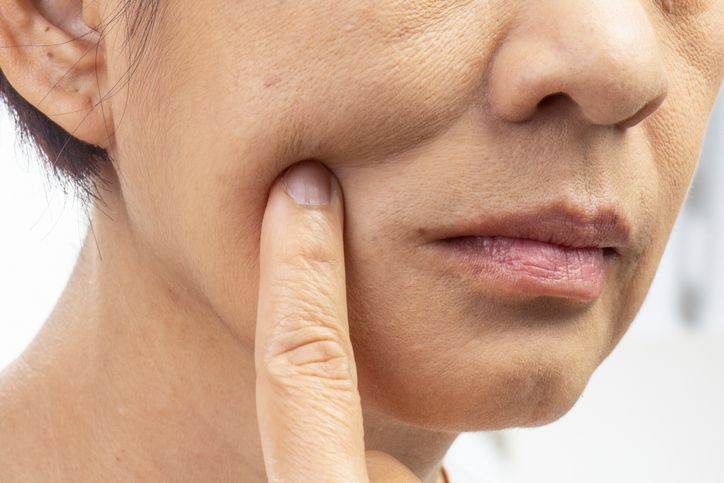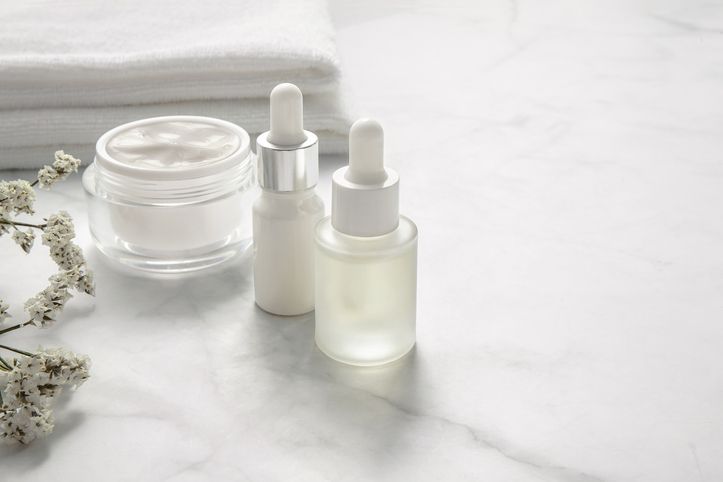
- Home
- Trend
- Weight Loss Strategies
- Acne Tips
- Hair Health Information
- Blemish Removal Tips
- Acne Scar Removal Tips
- Muscle Building Techniques
- Intimate Care Tips
- Postpartum Intimate Care
- Eye Bags Wiki
- Tips for Face Slimming
- Secret of Permanent Hair Removal
- Breast Enlargement Tips
- Cure to Snoring
- Marionette Lines
- Skin-Tightening Secrets

免費體驗
Thermage FLX 5th Generation Face Lift Treatment
1 Minute Self-Registration
Date should not be before minimal date
Loose or sagging skin can be a common concern, especially after weight loss or due to ageing. Understanding how to tighten loose skin effectively can help you achieve a firmer, more youthful appearance. Here's a comprehensive guide to tightening loose skin, including natural remedies, medical procedures, and lifestyle factors.
1
Why Do We Have Loose Skin?

What about Loose Skin after Weight Loss Around My Neck?

2
Aesthetic and Functional Concerns If You Find Your Skin Sagging

- What Are the Skin Benefits of Vitamin B3? Here's the Right Way to Use Niacinamide
- Thermage or Ultherapy: Which Is Better? Can You Use Them Together for Best Skin Tightening Results?
- Thermage Vs Ultherapy : Which Skin Tightening Treatment Is Right for Me?
- Is Thermage a Facelift? 3 Biggest Reason on Why Thermage Is the Better Option for Anti-Ageing Skin Tightening
3
Active Ingredients in Skincare Products that Can Help You to Reduce Loose Skin

Amino Acids that Can Stimulate Collagen Production

4
7 Solutions for a Smoother Appearance and Tighten Skin in No Time

1. Collagen and Elastin Production
2. Weight Management
3. Body Contouring Surgery
4. Non-Surgical Skin Tightening Treatments: Thermage FLX 5th Generation Face Lift Treatment
5. Cosmetic Procedures
6. Natural Remedies
7. Maintaining Skin Health
8. Facial Exercises

免費體驗
Thermage FLX 5th Generation Face Lift Treatment
1 Minute Self-Registration
Date should not be before minimal date
5
Closing Thoughts


免費體驗
Thermage FLX 5th Generation Face Lift Treatment
1 Minute Self-Registration
Date should not be before minimal date
FAQ

1. How does ultrasound skin tightening address loose skin on the face?
Ultrasound skin tightening addresses loose skin on the face by utilising focused ultrasound energy. This energy penetrates deeper layers of the skin, where it stimulates collagen production. Collagen is essential for skin elasticity and firmness. By promoting collagen synthesis, ultrasound skin tightening helps tighten loose skin on the face, resulting in a more rejuvenated appearance. One of its advantages is its non-invasive nature, offering a skin rejuvenation solution with minimal downtime compared to other treatments.
2. Why are elastin fibres important in addressing loose skin on the face?
Elastin fibres play a crucial role in addressing loose skin on the face. These fibres are responsible for maintaining the skin's elasticity, allowing it to stretch and return to its original shape. However, factors like ageing and excessive sun exposure can lead to the loss or damage of elastin fibres. When elastin fibres are compromised, the skin loses its ability to bounce back, leading to sagging and the formation of wrinkles. Therefore, preserving and supporting elastin fibres are important aspects of addressing loose skin on the face.
3. How can intense pulsed light (IPL) therapy improve loose skin on the face?
Intense pulsed light (IPL) therapy is effective in improving loose skin on the face by stimulating collagen production. During IPL therapy, pulses of light energy are delivered to targeted areas of the skin. This light energy stimulates the skin's natural healing response, triggering collagen synthesis. As collagen levels increase, the skin becomes tighter and firmer, reducing the appearance of loose skin. IPL therapy is known for its ability to promote skin rejuvenation and is a popular non-invasive treatment option for addressing loose skin on the face.
4. What are effective body contouring procedures for loose skin after moderate weight loss?
Effective body contouring procedures for loose skin after moderate weight loss include arm lifts, also known as brachioplasty. This procedure focuses on removing excess skin and fat from the upper arms, resulting in a more toned and contoured appearance. Arm lifts are particularly beneficial for individuals who have experienced significant weight loss, as they can help address loose skin that often occurs in the upper arm area. By tightening and reshaping the arms, brachioplasty can enhance overall body proportions and improve self-confidence.
5. What should people consider regarding loose skin on the face after bariatric surgery?
People who are considering bariatric surgery should be aware of the potential for loose skin on the face and body following significant weight loss. Bariatric surgery is effective in helping individuals achieve substantial weight loss, but it can result in excess skin due to rapid weight reduction. Before undergoing bariatric surgery, individuals should discuss post-surgery options with their healthcare providers. Strategies for addressing loose skin may include body contouring procedures, such as arm lifts or other surgical interventions, to improve body contours and overall appearance.








